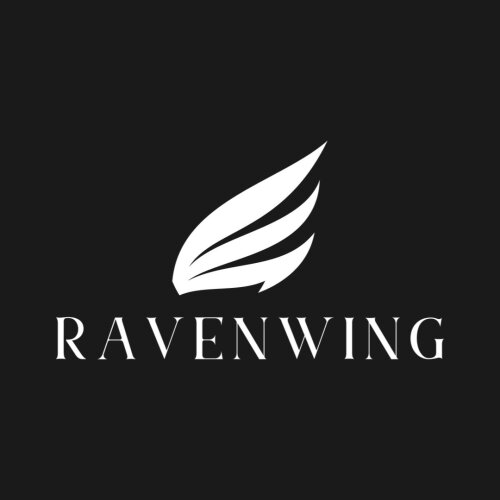Best Renewable & Alternative Energy Lawyers in Bang Na
Share your needs with us, get contacted by law firms.
Free. Takes 2 min.
List of the best lawyers in Bang Na, Thailand
About Renewable & Alternative Energy Law in Bang Na, Thailand
Renewable and alternative energy are increasingly important in Thailand, especially in growing urban districts like Bang Na. This area, located in eastern Bangkok, is seeing more attention to clean energy solutions due to rapid urbanization and Thailand's commitment to environmental sustainability. Renewable energy generally encompasses solar, wind, biomass, hydropower, and geothermal sources. Alternative energy includes any energy source that is not derived from traditional fossil fuels. The legal landscape in Bang Na reflects both national policies and specific local regulations, encouraging investment in cleaner energy while protecting public interests and the environment.
Why You May Need a Lawyer
People and businesses in Bang Na may require legal help in renewable and alternative energy for several reasons. These may include obtaining permits for installing solar panels, navigating complex environmental laws, securing land use agreements or licenses, forming power purchase agreements, handling disputes with energy providers, ensuring compliance with incentives or subsidy programs, and protecting intellectual property linked to new energy solutions. Lawyers can provide critical advice if you face regulatory hurdles, wish to invest in renewable energy infrastructure, or need representation in negotiations and legal proceedings.
Local Laws Overview
Key aspects of local laws in Bang Na related to renewable and alternative energy are shaped by both national and municipal regulations. The Energy Regulatory Commission (ERC) and the Ministry of Energy oversee most frameworks. Notable laws include the Energy Industry Act, which sets licensing and operation requirements, and the Enhancement and Conservation of National Environmental Quality Act, addressing environmental protection. Soi-specific zoning and building codes in Bang Na may impact where and how renewable installations can be developed. There are also government incentives, such as feed-in tariffs and tax exemptions, that influence legal approaches. Understanding these laws ensures that projects comply with both local and national expectations regarding safety, efficiency, and sustainability.
Frequently Asked Questions
What types of renewable energy are commonly used in Bang Na?
Solar energy is the most common, especially for residential and commercial buildings. Small-scale wind and biomass are used in specific industrial zones.
Do I need a permit to install solar panels on my property?
Yes, most installations require prior approval from local authorities and compliance with zoning and safety codes.
Are there any government incentives for renewable energy projects?
Thailand offers several incentives, such as feed-in tariffs for selling electricity back to the grid and tax exemptions for green investments.
Who regulates the renewable energy sector in Bang Na?
The Energy Regulatory Commission oversees licensing and compliance, while the Ministry of Energy develops national policy. Local administrative offices handle area-specific approvals.
Can foreign businesses invest in renewable energy in Bang Na?
Yes, but there are restrictions on land ownership and certain business structures. Legal guidance is essential for foreign investors.
What are the environmental considerations for new energy projects?
Projects must comply with environmental impact assessments and obtain approvals that address emissions, waste management, and community impact.
How can I resolve a dispute with an energy supplier?
Disputes can often be resolved through negotiation, but may require mediation, arbitration, or court proceedings with legal representation.
Are power purchase agreements standardized in Thailand?
Standard templates are used, but terms can be negotiated. Legal assistance helps ensure your interests are protected.
What happens if my project does not comply with local laws?
Non-compliance can result in fines, project shutdown, or loss of incentives. Prompt legal help is important to address violations.
How do I stay updated on changing energy laws in Bang Na?
Consultation with local legal professionals, subscribing to updates from government agencies, and joining industry groups help you stay informed.
Additional Resources
Several resources and organizations offer support for those seeking legal advice in renewable and alternative energy in Bang Na:
- Ministry of Energy - for policy updates and incentives
- Energy Regulatory Commission - for licensing and regulations
- Department of Alternative Energy Development and Efficiency
- Bang Na District Office - for local permits and zoning
- Thailand Board of Investment - for investment incentives
- Thai Renewable Energy Association - for industry networking
Next Steps
If you require legal assistance in the field of renewable and alternative energy in Bang Na, Thailand, consider the following steps:
- Clearly define your legal needs, such as permitting, contracts, or dispute resolution
- Gather all relevant project or business documents
- Consult with an experienced lawyer specializing in energy law in Thailand, ideally with local Bang Na expertise
- Prepare questions about incentives, compliance, and long-term legal risks
- Continue to monitor legal and regulatory changes that may affect your project or operations
Taking proactive legal steps will help ensure your renewable or alternative energy initiative in Bang Na proceeds smoothly and in compliance with all applicable regulations.
Lawzana helps you find the best lawyers and law firms in Bang Na through a curated and pre-screened list of qualified legal professionals. Our platform offers rankings and detailed profiles of attorneys and law firms, allowing you to compare based on practice areas, including Renewable & Alternative Energy, experience, and client feedback.
Each profile includes a description of the firm's areas of practice, client reviews, team members and partners, year of establishment, spoken languages, office locations, contact information, social media presence, and any published articles or resources. Most firms on our platform speak English and are experienced in both local and international legal matters.
Get a quote from top-rated law firms in Bang Na, Thailand — quickly, securely, and without unnecessary hassle.
Disclaimer:
The information provided on this page is for general informational purposes only and does not constitute legal advice. While we strive to ensure the accuracy and relevance of the content, legal information may change over time, and interpretations of the law can vary. You should always consult with a qualified legal professional for advice specific to your situation.
We disclaim all liability for actions taken or not taken based on the content of this page. If you believe any information is incorrect or outdated, please contact us, and we will review and update it where appropriate.










